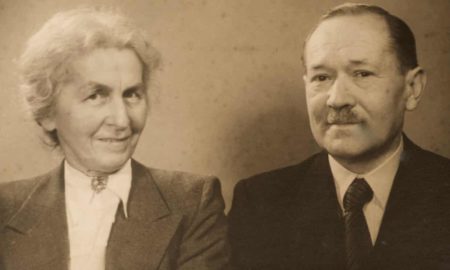Why did I pick this topic for today’s blog? Well, I ran across a BBC story (click here to read the article) about the women in the Women’s Auxiliary Air Force (WAAF), a British military service during World War II. The article focuses on three women assigned to the RAF Biggin Hill air base during the Battle of Britain. These women were awarded the Military Medal (MM) while only six women received the MM during World War II.
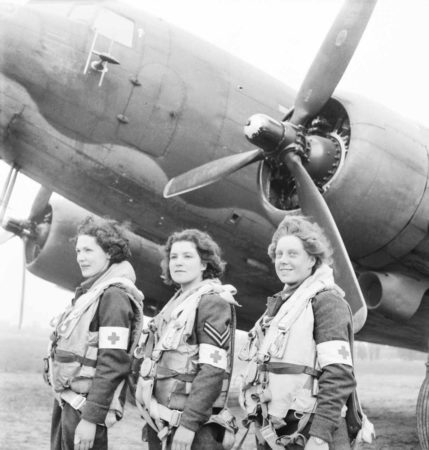
I’m always intrigued with stories of women’s contributions during World War II and other historical events. Some of the past blogs include Women Agents of the SOE (click here to read), Killed in the Service of Her Country (click here to read), The Ten Percenters (click here to read), The Wrens (click here to read), The White Mouse (click here to read), and The Night Witches (click here to read).
Biggin Hill is likely a topic that our British friends and historians know very well. However, outside of England, the story of Biggin Hill during the war may be a topic that is not well-known. So, apologies to those of you who are familiar with RAF Biggin Hill and the role it played during the Battle of Britain. If you have comments, suggestions, or perhaps other information you think should be added to this blog, please contact me.
Did You Know?
Did you know that I live in Punta Gorda, Florida and have you ever heard of Punta Gorda? Well, our little town dates to 1884 and Punta Gorda has a very strong and proud history with all its citizens. One of the families that settled here in 1905 was Archie and Josephine Bailey. The Baileys were African American, and they had eleven children: nine boys and two girls.
The oldest boy, Maurice (1906−1990), enlisted in the army and served in World War II and the Korean conflict. He is buried in Arlington National Cemetery. Berlin (1912−1997) served in the navy in the Pacific theater during World War II. Following the war, Berlin returned to Punta Gorda and was elected to the city’s planning commission. Charles (1918−2001) enlisted in the U.S. Army Air Corps and became the nation’s first African American armed forces pilot from Florida. He joined the 332nd Fighter Group and the 99thFighter Squadron commonly known “The Tuskegee Airmen.” Second Lt. Bailey, flying either a P-40 or P-51, flew 133 combat missions in Northern Africa and Europe as part of the “Red Tail Squadron.” After the war, Charles obtained his college degree and became a teacher. Harding (1920−1984) enlisted in the navy and served in the Atlantic theater. He became a school principal after the war. Paul (1922−1987) joined the army in 1943 and was a chaplain’s assistant in the Pacific theater. Paul obtained a music degree and became a high school music teacher. Arthur (1925−1959) enlisted in the U.S. Marines in February 1945 and saw action in the Pacific theater. Carl (1929−1957), the youngest son, served in the U.S. Air Force and flew F-84 Thunderjets. He was one of only two African American fighter pilots from Florida during the Korean conflict. Tragically, Carl died in an automobile accident.
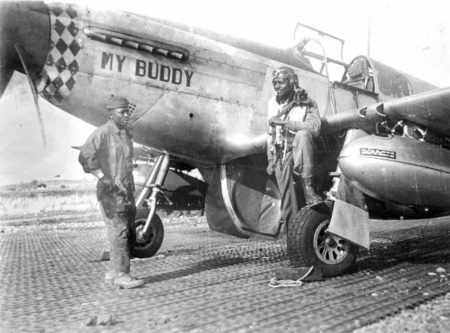
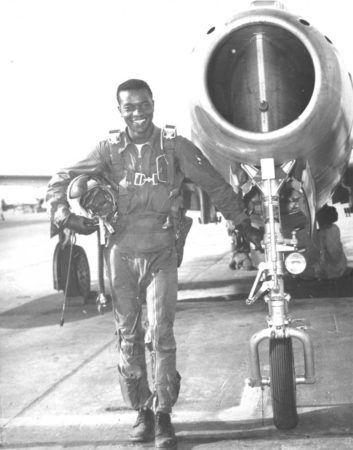
Collectively, these sons of Mr. and Mrs. Bailey are known as “The Fighting Bailey Brothers.” Today, five of the brothers are interned at the Lt. Carl A. Bailey Cemetery in Punta Gorda. The passenger terminal at the Punta Gorda Airport is named in their honor.
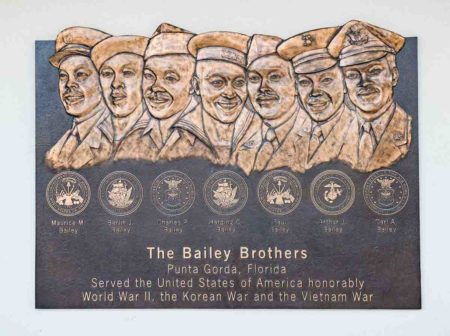
Click here to watch the video Meet the “Fighting Bailey Brothers.”
Biggin Hill
The town of Biggin Hill is located in the south-east of Greater London. It is situated on one of the highest points of Greater London and its airport, Biggin Hill Airport, supports general aviation needs including private and business jet traffic. Although large enough for Boeing 737 aircraft, the airport is not a commercial (i.e., paying passengers) airport. Read More Biggin Hill

